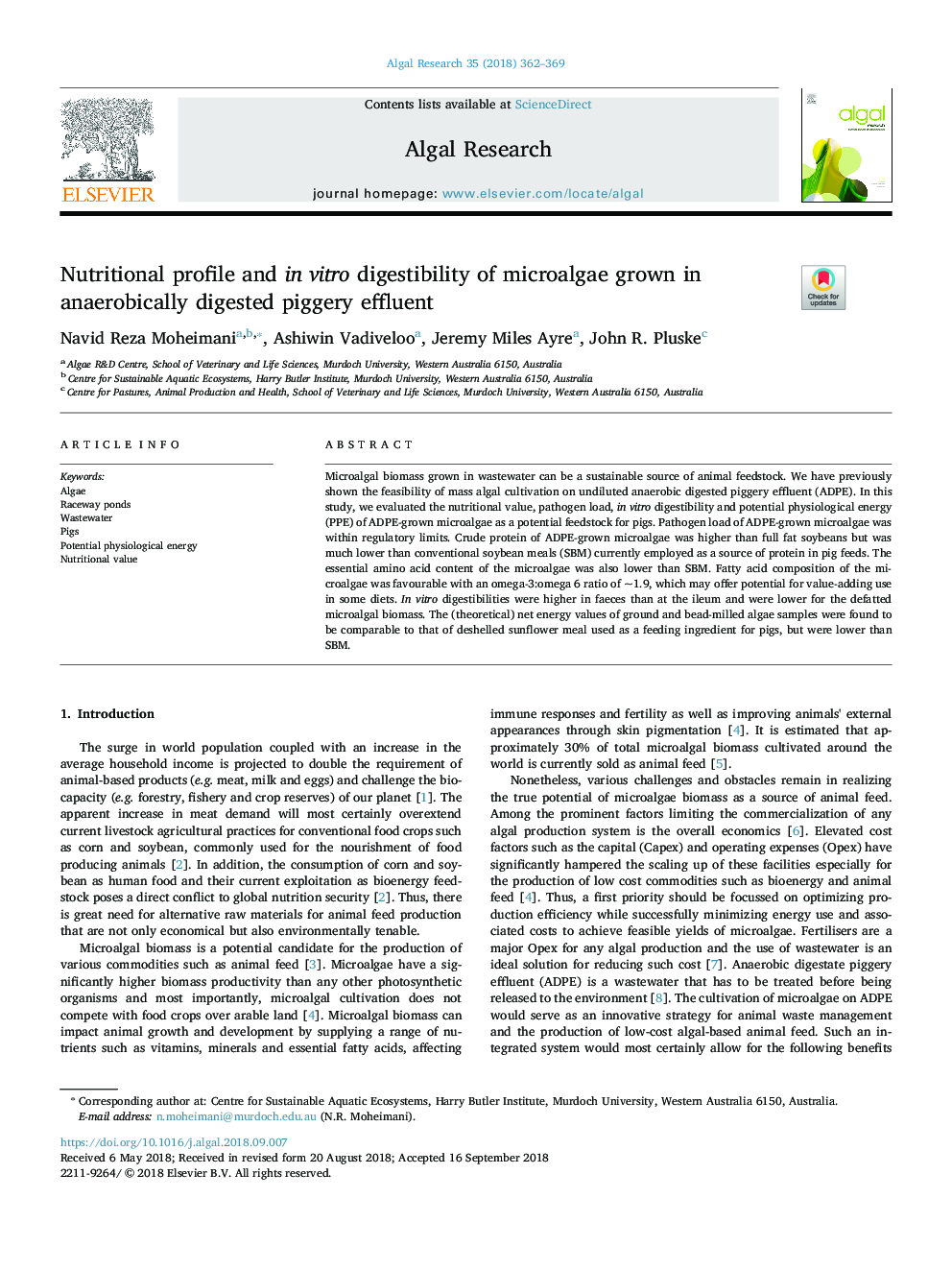| Article ID | Journal | Published Year | Pages | File Type |
|---|---|---|---|---|
| 10128944 | Algal Research | 2018 | 8 Pages |
Abstract
Microalgal biomass grown in wastewater can be a sustainable source of animal feedstock. We have previously shown the feasibility of mass algal cultivation on undiluted anaerobic digested piggery effluent (ADPE). In this study, we evaluated the nutritional value, pathogen load, in vitro digestibility and potential physiological energy (PPE) of ADPE-grown microalgae as a potential feedstock for pigs. Pathogen load of ADPE-grown microalgae was within regulatory limits. Crude protein of ADPE-grown microalgae was higher than full fat soybeans but was much lower than conventional soybean meals (SBM) currently employed as a source of protein in pig feeds. The essential amino acid content of the microalgae was also lower than SBM. Fatty acid composition of the microalgae was favourable with an omega-3:omega 6 ratio of ~1.9, which may offer potential for value-adding use in some diets. In vitro digestibilities were higher in faeces than at the ileum and were lower for the defatted microalgal biomass. The (theoretical) net energy values of ground and bead-milled algae samples were found to be comparable to that of deshelled sunflower meal used as a feeding ingredient for pigs, but were lower than SBM.
Related Topics
Physical Sciences and Engineering
Energy
Renewable Energy, Sustainability and the Environment
Authors
Navid Reza Moheimani, Ashiwin Vadiveloo, Jeremy Miles Ayre, John R. Pluske,
